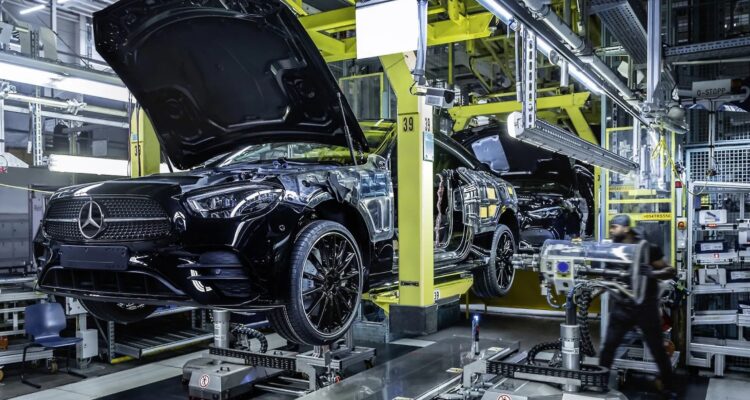Mercedes-Benz has outlined major cost reductions initiative following a challenging financial year in 2024. The German automaker reported a significant decline in profitability, with net earnings dropping by 28% to €10.4 billion and revenue falling by 4.5% to €145.6 billion. The company has attributed these declines to a combination of economic headwinds, shifting market conditions, and growing competition, particularly from emerging Chinese electric vehicle manufacturers.
Mercedes-Benz CEO Ola Kallenius said in a statement : “To ensure the company’s future competitiveness in an uncertain world, we are taking steps to make the company faster, leaner, and stronger.”
In response, the company has launched the “Next Level Performance” programme, which aims to improve operational efficiency and safeguard long-term profitability. A key component of this strategy is a 10% reduction in production costs by 2027. To achieve this, the company is working closely with suppliers to optimise material costs while also streamlining internal operations to cut fixed expenses. These measures align with Mercedes-Benz’s broader transformation strategy, which seeks to balance investment in electrification with financial discipline.
The challenging market environment has played a crucial role in the company’s performance. In China, a key market for luxury vehicles, demand has weakened amid economic uncertainties, putting pressure on pricing strategies. Meanwhile, in Europe, regulatory changes have increased the urgency for manufacturers to transition towards cleaner technologies. As competitors—particularly those specialising in electric vehicles—continue to expand, Mercedes-Benz faces growing pressure to remain competitive while maintaining its premium brand positioning.
Looking ahead to 2025, the company anticipates a continuation of these financial pressures. Projections suggest that revenue will remain slightly below 2024 levels, while earnings and cash flow are expected to decline further. A proposed reduction in dividends to €4.30 per share reflects these financial realities. Despite these challenges, Mercedes-Benz remains committed to its long-term goals, with its cost-cutting measures forming a crucial part of its strategy to sustain profitability in an evolving automotive market.
While the coming years will test the resilience of traditional luxury automakers, Mercedes-Benz’s focus on cost efficiency and operational optimisation suggests a strategic shift towards maintaining competitiveness in a rapidly changing industry. By balancing cost reductions with continued investment in technology and electrification, the company is positioning itself to navigate the evolving landscape while protecting its long-term profitability.
Author: Mark Salisbury, Editor








